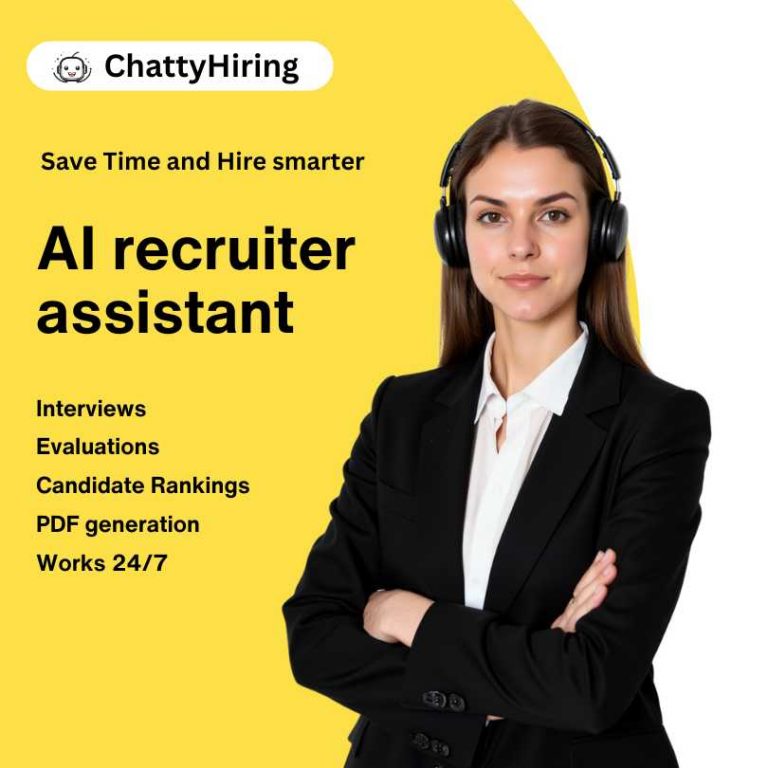New AI Sourcing tools leverage advanced algorithms and machine learning techniques to identify, engage, and evaluate potential candidates more efficiently than traditional methods. By automating repetitive tasks and enhancing data analysis capabilities, AI sourcing tools enable recruiters to focus on strategic decision-making and relationship-building, ultimately leading to better hiring outcomes.
The integration of AI in recruitment is not merely a trend; it represents a fundamental shift in how organizations approach talent acquisition. With the increasing volume of applicants and the complexity of job requirements, recruiters face significant challenges in identifying the right candidates. AI sourcing tools address these challenges by providing sophisticated solutions that can sift through vast amounts of data, analyze candidate profiles, and match them with job specifications.
This article delves into the myriad benefits of AI sourcing tools, their implementation in recruitment processes, best practices for usage, and the future trajectory of these technologies in the hiring landscape.
Key Takeaways
- AI sourcing tools use artificial intelligence to automate and streamline the process of finding and attracting top talent for job openings.
- The benefits of AI sourcing tools include saving time, reducing bias, improving candidate quality
- To implement AI sourcing tools in your recruitment process, start by identifying your needs, selecting the right platform, training your team, and continuously optimizing your workflow.
- Best practices for using AI sourcing tools include setting clear goals, leveraging data analytics, maintaining human oversight, and ensuring compliance with privacy and anti-discrimination laws.
- Challenges with AI sourcing tools can be overcome by addressing concerns about bias, ensuring data accuracy, providing transparency to candidates, and continuously refining the tool’s algorithms.
- Case studies demonstrate how companies have maximized efficiency with AI sourcing tools by significantly reducing time-to-hire, improving candidate fit, and enhancing the candidate experience.
Understanding the Benefits of AI Sourcing Tools
The advantages of AI sourcing tools are manifold, significantly enhancing the efficiency and effectiveness of recruitment efforts. One of the primary benefits is the ability to process large volumes of data quickly. Traditional recruitment methods often involve manually reviewing resumes and applications, a time-consuming task that can lead to oversight of qualified candidates.
AI sourcing tools can analyze thousands of resumes in a fraction of the time, identifying key skills, experiences, and qualifications that align with job requirements. This capability not only accelerates the hiring process but also increases the likelihood of finding the best-fit candidates. Moreover, AI sourcing tools enhance the quality of candidate engagement.
By utilizing natural language processing (NLP) and machine learning algorithms, these tools can personalize communication with candidates, making interactions more relevant and engaging. For instance, AI can analyze a candidate’s online presence, such as their LinkedIn profile or contributions to industry forums, to tailor outreach messages that resonate with their interests and career aspirations. This personalized approach not only improves candidate experience but also fosters a positive employer brand image, which is crucial in attracting top talent.
How to Implement AI Sourcing Tools in Your Recruitment Process
Implementing AI sourcing tools into an existing recruitment process requires careful planning and consideration. The first step involves assessing the specific needs of the organization and identifying areas where AI can add value. This could include automating resume screening, enhancing candidate engagement through chatbots, or utilizing predictive analytics to forecast hiring needs.

By understanding the unique challenges faced by the recruitment team, organizations can select AI tools that align with their objectives. Once the appropriate tools have been identified, organizations must focus on integration with existing systems. Many AI sourcing tools offer compatibility with applicant tracking systems (ATS) and other HR software, allowing for seamless data transfer and communication.
Training is also a critical component of successful implementation; recruiters should be equipped with the knowledge and skills necessary to leverage these tools effectively. This may involve workshops, online courses, or hands-on training sessions that familiarize staff with the functionalities and best practices associated with AI sourcing tools.
Best Practices for Using AI Sourcing Tools
To maximize the effectiveness of AI sourcing tools, organizations should adhere to several best practices. First and foremost is ensuring data quality. The accuracy of AI-driven insights is heavily dependent on the quality of the data fed into these systems.
| Best Practices for Using AI Sourcing Tools |
|---|
| 1. Understand the tool’s capabilities and limitations |
| 2. Ensure data privacy and security compliance |
| 3. Regularly update and maintain the tool’s algorithms |
| 4. Validate the tool’s results with human judgment |
| 5. Provide proper training to users for effective utilization |
Recruiters should regularly audit their databases to eliminate outdated or irrelevant information, ensuring that AI algorithms operate on reliable data sets. This practice not only enhances the precision of candidate matching but also improves overall decision-making. Another best practice involves maintaining a human touch throughout the recruitment process.
While AI sourcing tools can automate many tasks, they should complement rather than replace human judgment. Recruiters should use insights generated by AI to inform their decisions but remain actively involved in engaging with candidates and conducting interviews. This balance between technology and human interaction fosters a more holistic recruitment experience, allowing organizations to benefit from both efficiency and personal connection.
Overcoming Challenges with AI Sourcing Tools
Despite their numerous advantages, the adoption of AI sourcing tools is not without challenges. One significant concern is the potential for bias in AI algorithms.
If the data used to train these systems reflects historical biases—such as gender or racial disparities—there is a risk that the AI will perpetuate these biases in candidate selection.
Organizations must be vigilant in monitoring their AI tools for signs of bias and take proactive steps to mitigate it, such as diversifying training data and implementing fairness audits. Another challenge lies in the resistance to change among recruitment teams. Some recruiters may feel threatened by the introduction of AI technologies, fearing that automation will diminish their roles or reduce their influence in decision-making processes.
To address this concern, organizations should foster a culture of collaboration between human recruiters and AI systems. By emphasizing that AI is a tool designed to enhance their capabilities rather than replace them, organizations can alleviate fears and encourage buy-in from recruitment teams.
Maximizing Efficiency with AI Sourcing Tools: Case Studies

Several organizations have successfully harnessed AI sourcing tools to enhance their recruitment processes, demonstrating tangible benefits across various industries.
- For instance, Unilever implemented an AI-driven recruitment platform that utilizes gamification and machine learning to assess candidates’ skills and cultural fit. By replacing traditional interviews with online games that evaluate cognitive abilities and personality traits, Unilever has significantly reduced time-to-hire while improving candidate satisfaction rates.
- Similarly, L’Oreal adopted an AI-powered chatbot named “Mya” to streamline its initial candidate screening process. Mya engages with applicants through conversational interfaces, asking pre-determined questions related to qualifications and experiences. This approach not only saves recruiters valuable time but also provides candidates with immediate feedback on their applications. As a result, L’Oreal has reported increased efficiency in its hiring process and enhanced engagement with potential hires.
The Future of AI Sourcing Tools in Recruitment
The future of AI sourcing tools in recruitment appears promising as advancements in technology continue to reshape the industry landscape. One emerging trend is the integration of advanced analytics and predictive modeling into recruitment strategies. By analyzing historical hiring data alongside current market trends, organizations can better anticipate their talent needs and proactively source candidates who align with future demands.
Additionally, as natural language processing technology evolves, AI sourcing tools are expected to become even more adept at understanding nuanced language and context within resumes and job descriptions. This capability will enhance candidate matching accuracy and enable recruiters to identify hidden talent pools that may have previously gone unnoticed. Furthermore, as remote work becomes increasingly prevalent, AI sourcing tools will likely adapt to facilitate virtual hiring processes, ensuring that organizations can tap into global talent without geographical constraints.
The Impact of AI Sourcing Tools on the Recruitment Industry
The impact of AI sourcing tools on the recruitment industry is profound and far-reaching. By automating routine tasks, enhancing candidate engagement, and providing data-driven insights, these tools empower recruiters to make more informed decisions while improving overall efficiency. As organizations continue to embrace digital transformation in their hiring processes, the role of AI sourcing tools will only grow in significance.
As we look ahead, it is clear that the successful integration of AI into recruitment will hinge on a balanced approach that values both technology and human expertise. By leveraging the strengths of AI while maintaining a focus on personal connections with candidates, organizations can create a more effective and inclusive hiring process that meets the demands of an ever-changing workforce landscape. The future of recruitment is undoubtedly intertwined with advancements in artificial intelligence, promising a new era of talent acquisition that is smarter, faster, and more equitable than ever before.
If you are interested in learning more about the savings that AI interviews can bring to your recruitment process, check out this article on how much savings do AI interviews bring. This article discusses the potential cost savings and efficiency improvements that can be achieved by incorporating AI into your interview process. Additionally, if you want to enhance the candidate experience using AI tools, you may want to read this article on AI candidate experience. Lastly, for HR specialists looking to improve their candidate selection process, this article on boosting candidate selection with AI tools provides valuable insights and tips.
FAQs
What are AI sourcing tools?
AI sourcing tools are software applications that use artificial intelligence and machine learning algorithms to automate and streamline the process of sourcing and recruiting candidates for job positions. These tools can help identify and engage with potential candidates, analyze resumes, and match candidates to job requirements.
How do AI sourcing tools work?
AI sourcing tools work by using algorithms to search through large databases of candidate profiles, resumes, and online professional networks to identify potential candidates for specific job positions. These tools can also analyze and match candidate skills and experience to job requirements, and automate the process of reaching out to candidates.
What are the benefits of using AI sourcing tools?
Some of the benefits of using AI sourcing tools include increased efficiency in the recruiting process, improved candidate quality and fit, reduced time-to-hire, and the ability to handle large volumes of candidate data. These tools can also help reduce bias in the recruiting process and free up recruiters to focus on more strategic tasks.
Are there any potential drawbacks to using AI sourcing tools?
While AI sourcing tools offer many benefits, there are also potential drawbacks to consider. These may include the risk of algorithmic bias, the need for ongoing maintenance and updates, and the potential for over-reliance on technology at the expense of human judgment and intuition in the recruiting process.
What are some popular AI sourcing tools on the market?
Some popular AI sourcing tools on the market include LinkedIn Recruiter, Entelo, Hiretual, and TalentBin. These tools offer a range of features such as candidate search and matching, automated outreach, and analytics to help recruiters find and engage with top talent.
-

A passionate advocate for the future of HR innovation. With expertise in leveraging AI to revolutionize recruitment processes, Carlos has a clear vision: empower HR teams while creating meaningful candidate experiences.
View all posts



